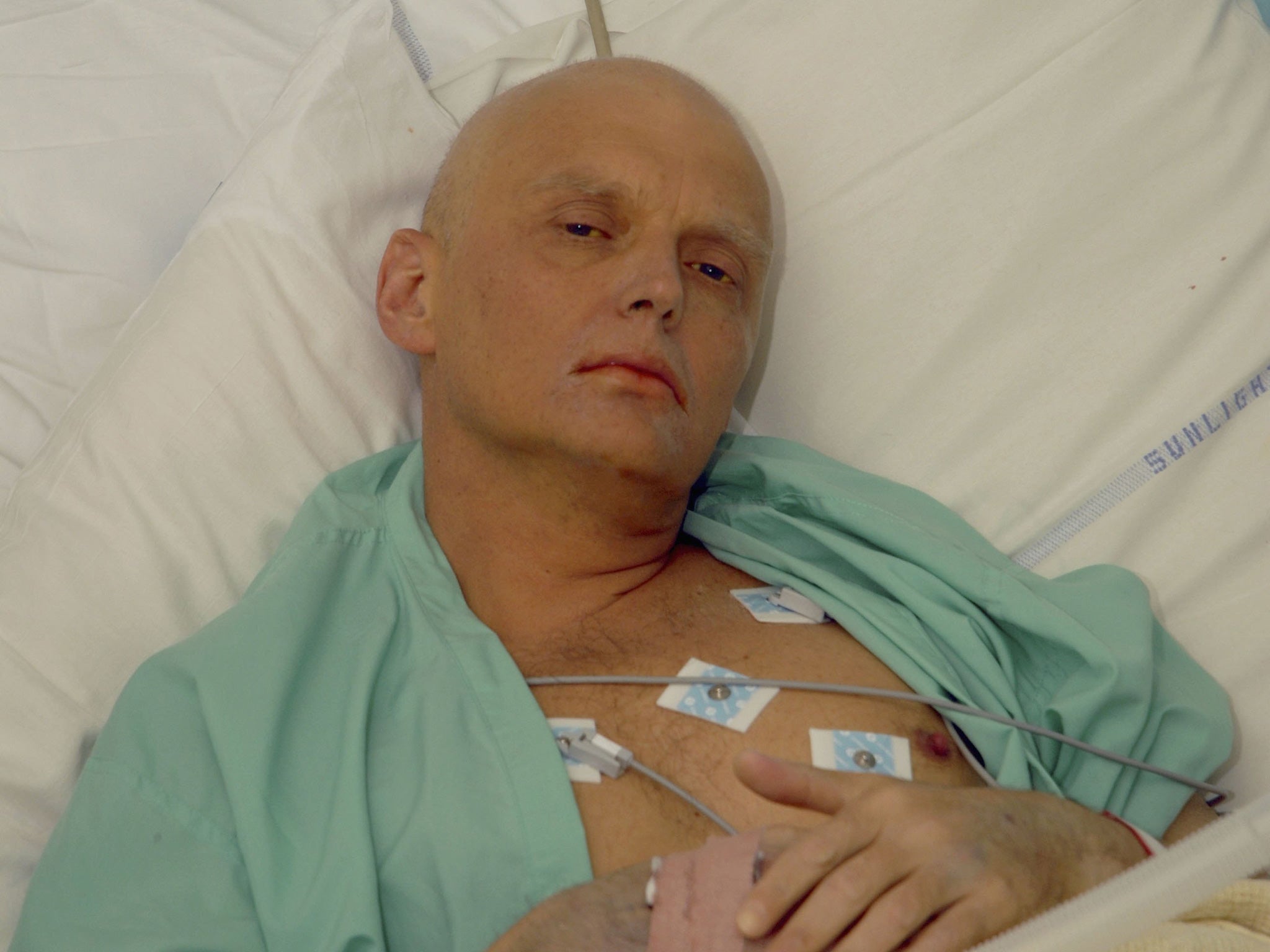Alexander Litvinenko's father retracted 'Putin poison' claim, inquiry told
In a 2006 statement Walter Litvinenko told how his son was struggling to speak when he visited him in hospital but accused Vladimir Putin over his death

Walter Litvinenko, the father of the murdered Russian spy Alexander Litvinenko, spoke of his regret at blaming Russian President Vladimir Puttin for his son’s death, an inquiry has heard.
Mr Litvinenko died aged 43, almost three weeks after drinking tea laced with polonium-210 in a London hotel in November 2006.
That year, Mr Litvinenko senior told police that even though his son had struggled to speak on his deathbed, he had told him: “Daddy, Putin has poisoned me”.
“He said Putin was a man with a perverted mind, a very dangerous man. Daddy, be careful,” Mr Litvinenko senior said his son had warned.
However, Mr Litvinenko senior later said he regretted blaming the Russian government and the president for the killing, which the Kremlin has denied being involved in.
In 2012, he described his son as a “traitor” on Russian state TV for working for the British intelligence services, and asked for the president's forgiveness.
"If only I had known that my son had worked for British intelligence I would not have talked about his death. He could easily have been shot as a double agent. Traitors should be shot," he told RT.
Police concluded that Mr Litvinenko, a former KGB agent, consumed the drink during a meeting with former agents Dmitri Kovtun and Andrei Lugovoi at a hotel in central London. The British authorities later decided to prosecute Mr Kovtun and Mr Lugovoi for murder.
It was confirmed on Tuesday at the inquiry into Mr Litvinenko’s death that Mr Kovtun would not give evidence, when a video link to Moscow showed the inquiry’s judge, Robert Owen, sat beside an empty chair.
He then confirmed that Mr Kovtun had said he would not be taking part, and called the situation a “charade” and accused the Russian authorities or a key suspect of interfering with the proceedings.
Mr Owen said: "This unhappy sequence of events drives me to the conclusion either that Mr Kovtun never in truth intended to give evidence and that this has been a charade.
"Alternatively, if he has at some stage been genuine in his expressed intention to give evidence, obstacles have been put in the way of his doing so."
Mr Kovtun said in a statement given to the inquiry that he was at the bar of the Millennium Hotel with Mr Litvinenko and Mr Lugovoi ”completely by chance“. He went on to claim that Mr Litvinenko had "flopped down" at their table, where he grabbed a teapot and poured himself some tea.
"He gulped down two cups and then had a coughing fit. In the course of the conversation he coughed constantly and wiped his mouth with a napkin."
Mr Kovtun added in the statement that that Mr Litvinenko appeared to have had "mental health problems" and was "driven to despair", adding: "he was prepared to do anything to achieve his financial goals."
He insisted that he "knew nothing about Polonium 210 until Mr Litvinenko's death".
Mr Lugovoi, now a politician, also denies involvement in the death.
Additional reporting by PA
